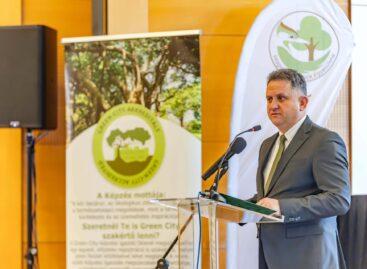Small and medium-sized farms would also be seriously affected by the withdrawal of EU agricultural subsidies
The European Commission is planning a brutal 20-25 percent withdrawal from the Common Agricultural Policy resources in the EU budget. The victims of this would not only be farmers, but also consumers – MAGOSZ and NAK draw attention.

The European Commission would radically reduce agricultural subsidies, and would use the withdrawn money to finance, among other things, the accession of Ukraine – emphasize the National Chamber of Agriculture (NAK) and the Association of Hungarian Farmers’ Circles and Farmers’ Cooperatives (MAGOSZ). The planned restructuring of the EU financing cycle after 2027, the cutting of area-based subsidies, poses a serious threat to farmers throughout the Union. According to the Commission’s proposals announced in mid-July, farmers could receive significantly less support. The Commission would make agriculture and the processing industry impossible, thereby endangering consumers, and products from third countries of dubious origin would be allowed onto families’ tables. Ukraine and other non-EU states would be brought to the market, at the expense of EU producers and consumers.
It is important to emphasize that agricultural subsidies are not gifts, for which EU farmers produce under the strictest plant protection, animal welfare and environmental protection conditions in the world
The Commission would not support healthy European food production, but rather help products produced in third countries without control – Ukrainian chicken, Brazilian sugar, Moroccan tomatoes, etc. – reach the market. The Commission would apply a banded deduction for area-based subsidies, which would also affect small and medium-sized farms extremely sensitively. According to calculations, almost a quarter of the subsidy would be deducted from a farm size of 100-150 hectares, and even more above that. This would be a huge blow to Hungarian agriculture and would destroy the family business model. The vast majority of producers in Hungary operate within family business frameworks, with more than half of the farmland being farmed by family farms, typically between 50 and 500 hectares. Furthermore, the proposal would completely withdraw subsidies from pensioner farmers, citing the fact that they already receive a regular income. This would mean nothing less than withdrawing subsidies from every third Hungarian farmer!
In parallel with all this, negotiations on free trade agreements with Ukraine and South American countries are underway
The Commission would grant Ukraine significant concessions: compared to pre-war quotas, honey imports could increase sixfold, sugar fivefold and eggs threefold, not to mention the complete liberalization of mushroom imports. The Mercosur agreement, to be concluded with Brazil and Argentina, among others, is also risky, as it would eliminate or reduce tariffs on four-fifths of food products coming from the South American market. In mid-July, several hundred Hungarian farmers demonstrated in Budapest, at the European Commission’s Hungarian representation, and in Brussels, a pan-European farmers’ demonstration took place, in which around 70 European farmers’ organizations participated in addition to NAK and MAGOSZ. NAK and MAGOSZ, together with around 80 interest-representative member organizations of Copa–Cogeca, are organizing another large-scale farmers’ demonstration in Brussels in the fall. Our goal is to protect farmers and consumers!
NAK
Related news
European Court of Auditors: EU Commission proposals affecting the common agricultural policy may cause uncertainty
🎧 Hallgasd a cikket: Lejátszás Szünet Folytatás Leállítás Nyelv: Auto…
Read more >









